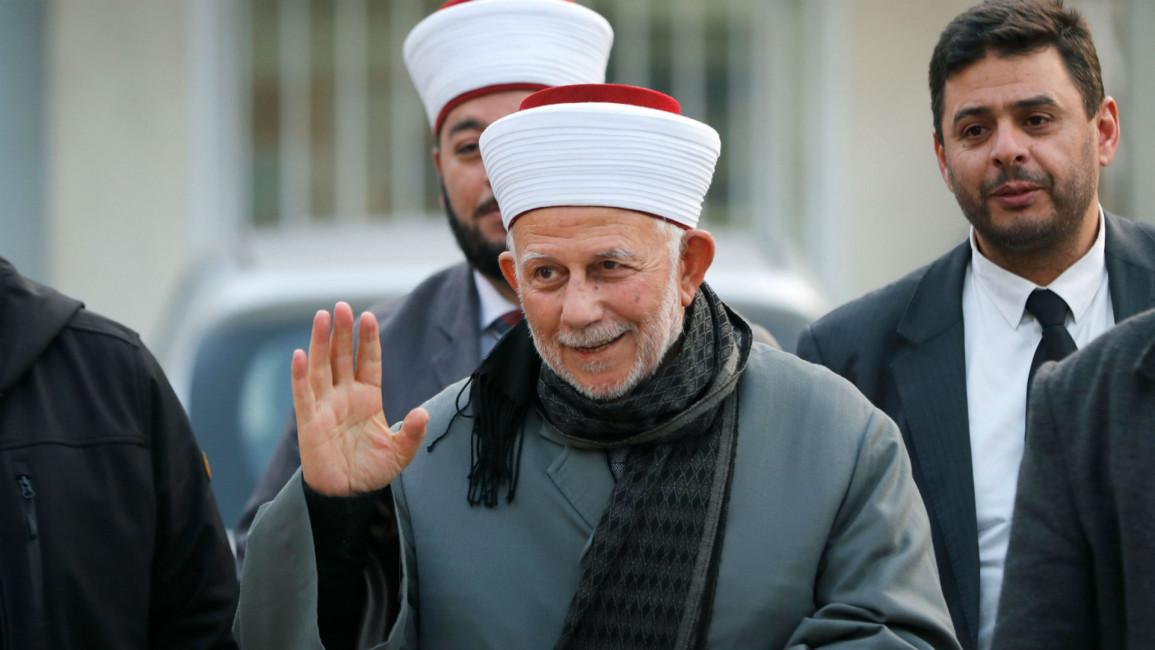Israel releases top Muslim cleric arrested after al-Aqsa scuffle
Israeli police arrested and later released a top Palestinian Muslim official in Jerusalem on Sunday after scuffles at a flashpoint holy site in the city in recent days.
The arrest drew condemnation from Jordan, the custodian of the al-Aqsa mosque compound in the disputed city.
Israeli police spokesman Micky Rosenfeld said Abdel Azeem Salhab had been arrested for violating an order preventing entry into a prohibited area of the holy site.
Salhab is the head of the council of the Waqf in Jerusalem, the religious authority that governs the site.
Official Palestinian news agency WAFA reported that his deputy Najih Bakira had also been arrested, but police had not confirmed it.
Both men were seen by an AFP photographer late Sunday afternoon leaving a police compound in Jerusalem.
A lawyer for the two men, Mohammed Mahmud, said they had been barred from al-Aqsa for seven days. Police had not commented.
The Waqf condemned the arrests in a statement, calling the police actions "dangerous".
The arrests followed the detention of 60 others overnight Thursday to Friday as police said they were responding to calls for unrest at the holy site surrounding Friday prayers there.
Some have since been released with an order not to visit the holy site.
Twitter Post
|
'Playing with fire'
The site is the third-holiest in Islam and a focus of Palestinian aspirations for statehood.
It is also the location of Judaism's most holy spot, revered as the site of the two biblical-era Jewish temples. Jews refer to it as the Temple Mount.
It is a frequent scene of conflict between the two sides.
Muslim worshippers' access to al-Aqsa and the adjoining Dome of the Rock is controlled by Israeli security forces.
A statement from Jordan's religious affairs minister, Abdul Nasser Abu al-Basal, said the arrests were akin to "playing with fire".
Jordan's foreign ministry also said it delivered an official protest to Israel.
There have been scuffles at the holy site recently over Israeli authorities' padlocking of a door leading to a side building in the compound, known as the Golden Gate or Gate of Mercy in Arabic.
Access was closed by an Israeli court order in 2003 during the Second Palestinian Intifada over alleged militant activity there, police say, but Waqf officials have argued that the organisation that prompted the ban no longer exists.
The Waqf council, which has undergone recent membership changes, has been more assertive in challenging such decisions, said Ofer Zalzberg, senior analyst for the International Crisis Group.
Worshippers prayed in front of the building recently, and on Friday crowds entered and prayed inside in defiance of the court ban.
Zalzberg said it seemed there were high-level contacts between Jordan and Israel to resolve the dispute, but Israeli electoral politics could interfere ahead of 9 April polls.
"On the positive side, we are seeing both governments taking this seriously," he told AFP.
"If this becomes an Israeli electoral issue, it will be hard for the Israeli government to act with moderation."
The religious site is located in east Jerusalem, occupied by Israel in the 1967 Six-Day War and later annexed in a move never recognised by the international community.



